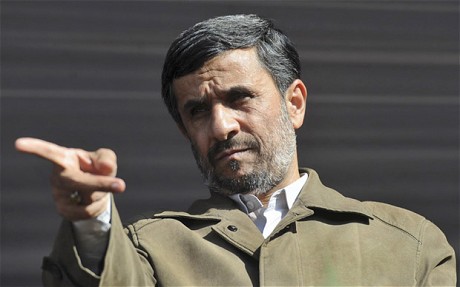For many, Hassan Rouhani’s administration seems like a breath of fresh air, an unprecedented moment of opportunity for reform in Iran. Many have pointed out that Rouhani’s progressive aspirations are in many ways restrained or undermined by Iran’s hardliners–but ironically, U.S. hardliners played a pivotal role in creating this dynamic.
Following the re-election of reformist president Mohammad Khatami, the Islamic Republic reached out to the White House calling for a dialogue–indicating a willingness to increase transparency of its nuclear program, to recognize Israel and even cut ties with Hamas.
But the Bush Administration rebuffed this offer, and even tanked Iran’s negotiations with Europe (also led by Hassan Rouhani and Javad Zarif) to limit Iran’s nuclear capacity to a mere 3,000 centrifuges. The White House at the time adopted Netanyahu’s position that any nuclear capacity for Iran was too much, and that the ideal was not just limiting Iran’s nuclear program but outright regime change. President Bush even went on to parrot Netanyahu’s line verbatim comparing the Islamic Republic to Germany’s Nazi regime in the lead-up to World War II–and analogizing those who want to negotiate as appeasers.
The failure of these bold efforts at diplomacy rendered Khatami unable to fulfill many of his campaign pledges–in turn, leading to massive gains by Iran’s conservative parties in the 2004 Parliamentary Elections, and the landslide victory of the much-more confrontational Mahmoud Ahmadinejad in the 2005 Presidential Elections. We should expect a similar dynamic to play out in Iran if the current attempts at rapprochement fail.
President Obama was right in noting how hardliners in the U.S. seem to have a common cause with those in Iran–but its hardly the first time. And if these zealots have their way, it won’t be the last.
